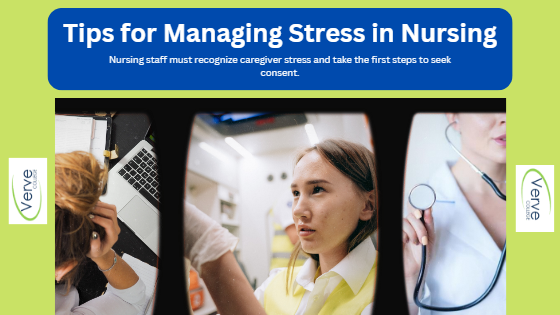- Oak Brook:(630) 705-9999
- Chicago:(312) 920-8822
- Email:inquiry@vervecollege.edu
- Make a Payment
- Home
- Programs
- Admission
- Resources
- ATI Entrance Exam Resources
- New E-Digital Library
- Refer a Friend
- School Newsletter
- Events
- Employers
- Job-Network
- Alpha Beta Kappa Candidates
- Verve College Library
- Graduation and Pinning Ceremony Photo Galleries
- Textbook Information
- Career Services
- Tutoring
- School Catalog
- FAQ
- Constitution Day Program
- Alumni
- Verve College Plans
- Financial Aid
- HEERF Reporting
- Satisfactory Academic Progress
- Apply For Financial Aid
- Net Price Calculator
- Return of Title IV Funds (R2T4)
- Financial Aid Office Code of Conduct
- Contact
- FAQs
- Verification Policy
- Vaccination Policy
- Student Right-to-Know Act
- Misrepresentation
- Information Security Program
- Academic Award Year
- Availability of Employee
- Cost of Attendance
- Health & Safety Exemption Requirement
- Students Rights and Responsibilities
- Leave of Absence
- Pell Formula
- Military Students
- Grants/ Scholarship Policy
- Contact Us
- Login
- Testimonials
- Blog
Is a Nursing Career Right For You?
Take The Free Quiz
How to Deal With Stress as a Nurse Assistant?
How to Deal With Stress as a Nurse Assistant?
Nursing can be stressful. It can cause staff burnout or maintenance issues. The COVID-19 Pandemic highlighted the dangers nurses face in providing life-saving care. It is always advisable to aspirants that before taking admission, one must check the curriculum that carries practical nursing programs as they are very beneficial for countering stress during work.
Nursing Stress Management: The Importance
Nurses must be able to recognize the importance and benefits of self-help. Their health is crucial to their ability to perform their jobs. Nurses who can manage stress well can be more productive in their job. Nursing professionals who can handle pressure well will be more effective in their careers
How to Understand Stress Symptoms in a Nurse?
Stress can cause many issues for nurses and healthcare professionals who are dealing with it:
- Anxiety and Fear
- Neglecting, numbness, or disbelief
- Uncertainty and Nervousness
- Motivation or Energy Loss
- Tiredness and burnout
- Dispiriting and sadness
- Nightmares and Sleeplessness
- Appetite loss
- Concentration difficulty
- Cynicism
- Anger
- Spirits, tobacco, or drugs
Although stress isn’t always inevitable, nurses can experience negative emotions. They must understand these symptoms and work together to manage them. If pressure is not controlled, it can lead to more serious health problems.
Related Resourse:- 7 Effective Reasons to Become a Licensed Practical Nurse
Tips for Managing Stress in Nursing
These steps can be used to help nurses reduce stress:
- Take control of your eating habits
- Poor sleeping habits can be caused by stress: This cycle can be stopped by exercising and eating healthily.
- Stretch and move: It can improve your mood and sleep patterns.
- Meditation, yoga, mindfulness, and meditation can all help to reduce stress.
- Find a hobby that you enjoy and can unwind.
- Feel free to share your feelings: It’s okay to vent with professionals and faith-based and community-based organizations.
- It can be helpful to keep track of your thoughts, emotions, and feelings.
- Your exposure to social media is important: It is crucial to be informed in times of crisis. Setting parameters for media consumption can help you avoid getting too obsessed with negative events.
Talk About it
For nurses, it is easy to come home after a shift and want to relax watching television or PC. The stress doesn’t disappear. When the nurse goes to bed, challenging situations and events may come back. The stressor will be there the next day. Talking about the stressor after a hard and stressful shift can be helpful.
Sometimes, it can be not easy to speak with someone you don’t know or your spouse. Talking things out is to get them out, not necessarily in order to find a solution. It is possible to identify stressors and talk about them later.
The nurse can also identify the real issues by talking about stressors. Poor staffing could prevent a nursing professional from having a difficult day. The nurse may find out that the manager isn’t listening to the nurse’s concerns about patient safety when they talk about it later. The nurse should address the problem by improving communication between staff and managers.
Get Help
Sometimes, the stress that they experience is too massive for them to manage using these techniques (and many others). Nurses are allowed to seek professional help when necessary. Nurses should seek professional assistance immediately if stressors at the workplace cause severe symptoms, affect interpersonal relationships or threaten patient safety. Many organizations offer staff support, as well as community resources. Nursing staff must recognize caregiver stress and take the first steps to seek consent.
Want to Make a Career in Nursing? Get More Information About Our Courses!
The Key Takeaway
The best nursing schools train their students to counter work stress and burnout. Verve College of Nursing offers licensed practical nurse programs in the USA. The faculty helps students not only focuses on the theoretical aspects of nursing but also helps in training students to counter work stress and burnout. Contact us now to enroll in nursing programs.
 Sign up
Sign up Login
Login





